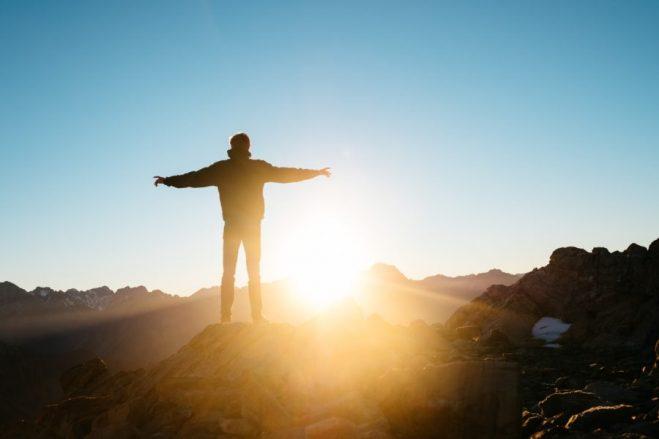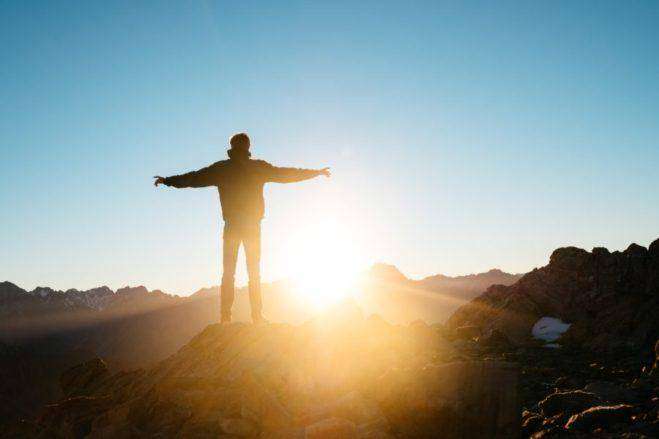
Today, let’s focus on one of the most abstract, most personal, and most worth-analyzing nomadic concepts: Freedom.
In our nomadic context, freedom relates to the flexibility of escaping the norm and changing our lives to reflect what we want. On a grander scale, it’s a timeless concept: People have always fought for it in one form or another.
In the developing world, freedom is usually connected to the fight for personal liberties or financial opportunities – basically, for a necessity that is lacking.
It’s a bit of a different story in the developed world, where the biggest tyrants controlling our freedoms are – ironically – ourselves. Here, the enemies are self-imposed mental barriers, victim mindsets, endless excuses, fragile egos, and societal expectations.
Listen to the full pod here:
The little technological wrinkle
Where once technology forced nomads to settle and adopt agriculture, it has now opened the door to this new form of digital nomadism.
The dichotomy of tech’s effect on freedom runs even further. On the one hand, we’ve been given all sorts of new opportunities – air travel, globally recognized passports, and remote work, to name a few. On the other hand, we can’t ignore that modern tech has also enabled threats to our freedom such as corporations monopolizing data or governments abusing power.
One final note about the general notion of freedom: It always has its limits because attachments catch us all. That’s not necessarily a bad thing; attachments born out of love are good and can actually boost our freedoms. And negative attachments are often beyond our control; sometimes, other responsibilities trump our quest for freedom. Which brings me to say that if freedom is vital to you, the struggle of attaining it really is constant.
On that note, here are some more specific subsections of freedom:
Financial freedom can’t buy happiness… But it can get us pretty close
Money is the most powerful “plug number” – it can solve problems and help create many subsets of freedom.
Ideally, you’ll be able to accumulate money to the point where it’s no longer desperately needed while keeping expenses low. Past a certain point, you’re essentially working for money instead of the lifestyle, so it’s a delicate balance to strike.
To take a more nuanced approach, let’s consider the three layers of financial freedom:
- General sustenance – Enough to sustain yourself and anyone you’re responsible for
- Lifestyle sustenance – Enough to sustain your pursuit of the type of life you want
- Risks and opportunities – Enough to recover from unexpected shocks, capitalize on promising investments, or help others in need. (This is the most challenging form of financial freedom).
Lastly, financial freedom related to that classic equation: Revenue minus Expenses.
Non-nomadic people typically preoccupy themselves with revenue – how much they make. But the more disciplined we get with ensuring our expenses match our wants, the more we avoid spending on superfluous things. And the closer we get to realizing all three layers above.
Most nomads approach the equation from the expenses side, sometimes to a fault. In the case that they adopt a scarcity mindset that’s spending-averse, the focus should be less on expenditure and more on translating skills into a profitable venture.
So again: the approach to finances requires a delicate balance.
Transaction and identity freedom: The key is spreading out
In a way, this can be regarded as a subsection of financial freedom. Because at the heart of it is money, an entity that – after a long while – I understood does not actually exist. Meaning that anyone who runs numbers can make it disappear.
So let’s take steps to make sure it doesn’t, by diversifying and optimizing:
Banking. Beyond trusting a stable bank, you want to make sure all your eggs aren’t in one basket. Variety and flexibility are key: Use Paypal, Revolut, Transferwise, Payoneer, Crypto, numerous banks across countries, and/or other resources.
Identity protection. The less you allow governments and corporates, to track your identity, the better. For example, their global anti-cash initiatives aren’t in pursuit of your money, but rather your data. For what? I’ll leave that answer to you… But we may be headed towards a world where money is not enough to buy things; you’ll need permissions to use that money as well.
Means of communications. The online world, phone identity access, and abundant wifi have made this form of freedom quite simple to achieve. I’ve even gone beyond the struggle of finding country-specific SIM cards by turning to Google Fi (basically a global SIM card).
Knowledge bases. The ability to do research without being blocked by governments who filter what information favors them and what doesn’t – as knowledge-seekers by nature, this freedom is quite valuable to us nomads.
Movement and protection: How strong is your passport?
We live in a world defined by a nation-states model, mostly to the benefit of our mobility. The anchor within this framework is a strong passport – it can determine where you go, how you’re treated, and your general quality of life.
This is where the notion of protection plays a role: The stronger and more cohesive your nation (and, thus your passport), the more help you can expect to receive in times of need while abroad. However, if your passport has a weaker nation behind it, such support is likely harder to obtain… And freedom of mobility should probably be even higher on your agenda.
Similarly, consider your ethnicity’s standing within your country. Historically targeted minorities – especially those with past nomadic tendencies – have both a greater need and greater obstacles to achieving strong nationality.
That said, even a strong passport isn’t always enough – nations can change quickly. Take, for instance, Venezuela, which was the richest Latin American country not so long ago.
The bottom line, yet again, is not to put all your eggs in one basket. Whether or not your passport is strong, your freedom of mobility only stands to benefit from another passport.
Location independence: The heart of digital nomadism
The idea here is one we’ve discussed before: To achieve a situation in which you don’t have to stay anywhere. It’s a unique position – the nomadic “holy grail” if you will, where no financial, familial, or emotional roots holding you in place.
The very general backdrop to obtaining location independence looks something like this:
- Identify your attachments. See what you’d lose if you moved away and count your “golden cage” situations (i.e. those in which you staying benefits everyone involved). It’s often these golden cages and the fear of losing X, Y, or Z that keeps us from taking the plunge.
- Assess the value of these attachments. Are they worth it?
- If not, restructure your career, emotional situation, or belief system to create the clearest path towards your desired freedom.
Note that this process may very well take a year or even many years. Just ask the prophet!
Time freedom: One of our society’s greatest struggles
Back when we talked about my week of disconnection, I introduced the idea of time freedom and the difficulty of disconnecting even as a nomad. I’ve found the value of being able to decide how to spend your time and to disconnect when needed.
Doing so requires proactively remodeling your activities, roles, or business needs to advance your long-term goal of increased freedom. The biggest challenge on this journey, though, is the status quo that drives you to be busier and busier.
Currently, the things that tend to occupy much of our time freedom are voluntary addictions to screens and substances. Remember – the best psychologists in the world are working on getting you hooked. You’ll lose if you fight them, so maybe just disconnect and run away.
Legal and society freedom: What lies between you and the life you want?
Here, we’re talking about the ability to live the life you want without legal obstructions threatening you with jail time or societal pressures infringing on your emotional stability. If this is the position you find yourself in, I can only suggest working harder on getting that new passport.
To elaborate on societal expectations: If they don’t align with who you are, who you want to be, the lifestyle you desire, the beliefs you hold, the partner you love, or the creativity you want to express – in other words, if your society or tribe owns you – then do yourself a favor.
Ego and mental freedom: What stories are you telling yourself?
Piggybacking off the previous section, a part of societal freedom is tied into how much you take certain restrictions and norms to heart.
Those that aren’t set in law might not really exist beyond your own imagination, expectations, and ego. Getting free from yourself and the stories you tell yourself is often the key to escaping your environment’s pressure.
In my Yom Kippur episode, we discuss how this ancient gift of a day can help you change your story. And it’s what I do every year.
Final word: Is freedom even attainable? Or are we slaves to our own pursuit?
Of course, there are other subsections of freedom – health and the ability to breathe, move, see, etc… Regardless of whether or not you have these freedoms, you still probably have the capacity to achieve higher freedoms as well.
With that being said, I want to leave you with a final note from Khalil Gibran, the writer of The Prophet, who claims that desire for freedom is our biggest chain:
I have seen you worship your own freedom as slaves humble themselves before a tyrant and praise though he slaves them.
Confused? Me too… Let me know your thoughts in the comments below!



There are some of the reasons why I love freedom . But what I especially love is exploring the city by foot.
Anna – thanks for reading!
And agreed. When I arrive to a new city, “Wandering aimlessly” very quickly shoots up my list of priorities.
If you see this comment, let me know some of your favorite cities to explore by foot!
Spotify podcast led me here. Never heard these great ideas before. Your content is hidden vem. Maybe you can get a youtube channel to talk with simple pictures.
Gordon – these words are truly the biggest praise that Eli & I could ever ask for. Thanks so much!
This is still very much an on-the-side passion project for the both of us, but we’ll definitely put “youtube channel” on the table of future possibilities. Great idea!
And hey, if you’re still liking what you head on the pod & feel like spreading the word, leave us a review on Apple pods! https://podcasts.apple.com/us/podcast/become-nomad-digital-nomad-lifestyle-and-long-term-travel/id1051084986